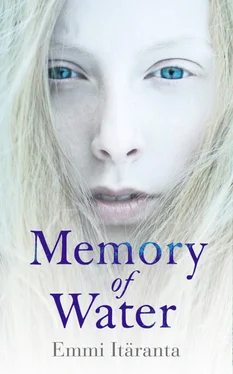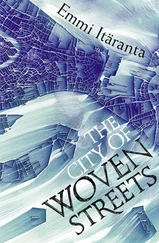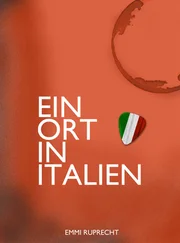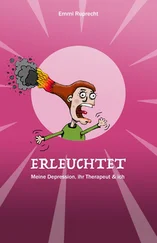‘My father was a tea master,’ the woman said then. He had been killed in the water wars when she was very young, but she remembered his stories about tea masters who understood water.
I asked if there really was pure, fresh water in the Lost Lands.
The woman looked at the two men. I saw the taller one take a deep breath and eventually give a silent nod.
‘There is,’ she said. ‘And we want it to belong to everyone, not just the military.’
I thought about her story. I couldn’t see why she would lie to me about something like that. Their fate was in my hands. The rewards for catching war criminals were decent, and if I wanted to report them, all I had to do was call the village police right now. There were three of them and only one of me, that was true; but I was in good health, and they were weak. I would be out of the door and out of their reach before they knew it. They seemed to understand this, too.
I told them I would help them.
If their relief was not genuine, it was the best pretence I had ever seen.
I took them to the only place I trusted to be secure. It was important that even they themselves didn’t know the way there, so I had to take them one by one, blindfolded and along a circuitous path. This was the condition of my offer of refuge, and after short negotiations, they complied without a complaint. I knew there was a possibility they might be able to combine their knowledge and guesswork about the location into a certainty and track the route again later, but it was a risk I had to take. When they were all safely in the hiding place, I made another trip to the house to fetch food and clean clothes.
They stayed for two weeks. I went to see them every two days, and every time I told them the latest news from the village. They didn’t tell me much about themselves, but I learned some things: they were all academics, and they seemed to belong to some larger underground organisation striving to end the water restrictions. After a fortnight they wished to leave, because the place was beginning to get cramped for them, and they were worried (or so they claimed) about putting me in danger by staying too long. As far as I knew, the soldiers had taken their search to other nearby villages, so I believed it was as safe as it was going to be for them to leave. I drew a map for them showing a route out of the village that was the least likely to be guarded and gave them food and water. They wanted to make it to Kuoloyarvi first and then continue to New Piterburg. One by one I walked them from the hiding place to the slope of the fell, where I had left the food parcels. It was just before dawn and early spring, and the sky was already brightening into morning.
They thanked me for my kindness and said they had no way of repaying me. I replied that some things didn’t need repayment.
The woman smiled. Her eyes were dark in the morning dusk.
‘You do realise none of us will probably see the time when water runs free again?’ she said.
‘I do, but that’s not enough of a reason to give up hope that it might happen one day.’
‘To some it would be,’ she said.
They left, and I watched their narrow figures, until they vanished into the folds of the fell.
I don’t know what happened to them. I never heard of them again. I don’t know their real names, or if they saved the knowledge they carried with them. Perhaps the knowledge saved them. I’ll never know if they told me the truth or if I did the right thing. But this is my last story, and after I have recorded it on these pages, my water may run dry freely.
I closed the tea master’s book and stared at the paper-littered floor. The pieces were moving in my mind, trying to form an understandable image. Could these travellers hunted by soldiers who had visited the tea master’s house have belonged to the Jansson expedition? The likelihood seemed extremely small. On the other hand, it might have explained how the silver-coloured disc had ended up in this very village. If they had been afraid of getting caught and wanted to prevent the military from laying hands on their information about the Lost Lands, they could have thrown their recordings into the grave.
I was even more curious about whether Miro had really hidden them in the fell – perhaps even in the spring itself. It would have been unheard of. Everything about my father’s words and behaviour had made it clear that only tea masters and their apprentices, once they had learned enough, could go to the spring, and perhaps occasionally family members – I was certain my mother had been there. However, Miro would have violated all traditions and unwritten laws by hiding strangers he had no reason to trust in the cave. But what other place could he have meant? He hadn’t mentioned taking water to them, only food. It struck me as odd that he hadn’t described the hiding place at all. It was uncharacteristic of his detailed writing style, so it seemed like a deliberate choice.
The message-pod beeped at the entrance. I hoped it would be my mother. I hadn’t heard from her since she had asked for the spoon a few weeks ago. My leg muscles were prickling after the long sitting as I walked stiffly to read the message. It was from Sanja.
Could you sell a few skinfuls by instalments? Hurry!! Today if you can, she wrote. A cold weight fell into my stomach. Sanja had never asked for water. I thought of Minja immediately. There was still daylight left for several hours, and I would make it back from the village before the curfew.
I’m on my way, I replied. I left the books spread around the living room floor, filled three large waterskins, carried them to the helicycle cart and started the slow ride towards the village.
The front door was locked. I knocked on it, but there was no sound from inside. I knocked again. Nothing but silence. I took off my coat and cast it on top of the waterskins to cover them from sight. I walked around the house to Sanja’s workshop. I tried the door, but it was latched on the inside. I peered through the mesh walls: there was a half-assembled past-machine on the worktop next to a half-eaten seedcake, and the blades of a small solar fan were cutting the heat of the day. Sanja was nowhere to be seen.
I thought of the past-world stories I’d heard about ghost ships whose crew seemed to have evaporated without explanation: of a pen dropped on the table mid-sentence, of steaming laundry in the copper and still-warm tea in its cup when rescue arrived.
‘Sanja?’ There was no answer. ‘Sanja!’ I cried out again. ‘Kira? Jan?’
There was no sound from Sanja or her parents. Even Minja’s voice didn’t echo in the house. I turned to go back to the front door, but then I heard a clank from behind me. When I looked in the direction of the sound, I saw Sanja scrambling up from the workshop floor. Her face was flushed.
‘Is everything alright?’
Sanja turned to me and wiped sweat from her brow with the back of her hand.
‘You were quick.’ She switched off the desk fan, opened the door and stepped out of the workshop.
‘I didn’t see you,’ I said. ‘I didn’t think there was anyone here.’
‘Oh, I was just rummaging under the table,’ she said, but avoided my gaze. I was certain there was no place in the room that I could have missed by mistake.
‘Is everything alright?’ I repeated. Sanja’s shoulders fell.
‘No,’ she said. I saw tears twitching behind her face. ‘Minja…’ Her voice was coarse and cracked. ‘She’s not alright. Mum took her to the doctor – again – but it was no use last time, either.’ She swallowed and raised her eyes. ‘The medicines need to be dissolved in water.’
Читать дальше
Конец ознакомительного отрывка
Купить книгу












